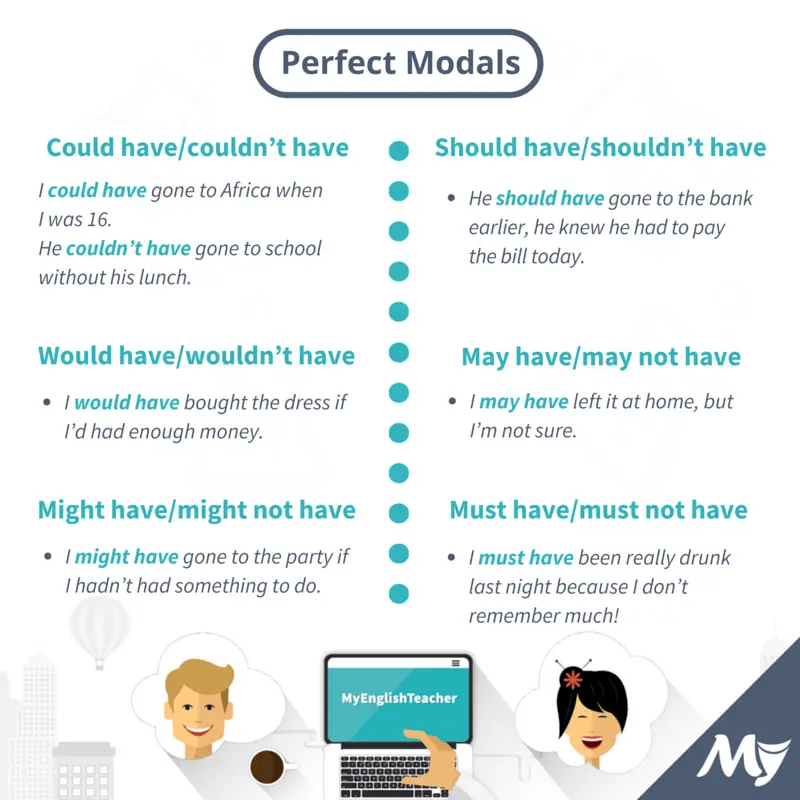
Let’s go through these one by one:
Could have/couldn’t have
This denotes past ability, how you had this option in the past but now the choice no longer exists.
- I could have gone to Africa when I was 16.
- You could have been a rockstar, You were really good at playing the guitar.
- He couldn’t have gone to school without his lunch.
- She couldn’t have stolen the bag, she was in another town.
Should have/shouldn’t have
These denote past obligation, something that you had to do in the past for the result to be favourable now.
- He should have gone to the bank earlier, he knew he had to pay the bill today.
- She shouldn’t have touched their property, that wasn’t the right thing to do.
- We should have gone to see her when we had the chance.
- I shouldn’t have said that to Mr Brown, I wasn’t thinking about it.
Would have/wouldn’t have
These show a past conditional construction, a condition that existed in the past but does not anymore.
- I would have bought the dress if I’d had enough money.
- I wouldn’t have gone to the party if I had known she would be there.
- She would have been so sad if she had seen that picture.
- We wouldn’t have been so angry if they had just apologised.
May have/may not have
These constructions denote past possibility, they usually describe something about which you are not quite certain.
- I may have left it at home, but I’m not sure.
- I may not have told him to go to the store earlier.
- We may not have been so lucky if things had happened differently.
- I may not have been honest with him.
Might have/might not have
These constructions denote past possibility, they usually describe something about which you are not quite certain.
- I might have gone to the party if I hadn’t had something to do.
- I might not have been so angry but I was having a bad day.
- She might have left it at home.
- We might go to the party later, if you want to come.
Must have/must not have
This denotes past probability, something of which you are nearly certain but of which you are not quite sure.
- I must have been really drunk last night because I don’t remember much!
- She must not have heard me properly because I didn’t say that.
- He must have been having a bad day because he’s not usually like that.
- We must not have been thinking straight because that was a silly thing to do.
Be careful not to use of instead of have in these constructions, because they sound similar in speech it is not uncommon to see could of or could have written down on paper. This is incorrect!
Recommended for you:
Can vs Could vs Shall!
MODAL VERB + HAVE + PAST PARTICIPLE!
Would vs Could vs Should vs Might in English!
Difference Between MAY, MIGHT, MAY HAVE And MIGHT …What is the difference between MUST and SHOULD
Have vs Have got
I had to or I must? What is the difference?
How To Use The Passive Voice With Helpful Examples


























